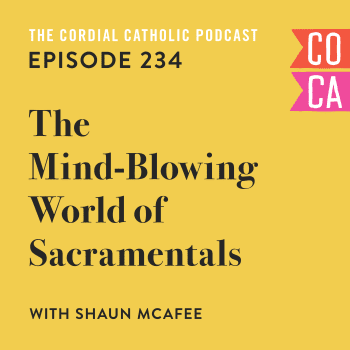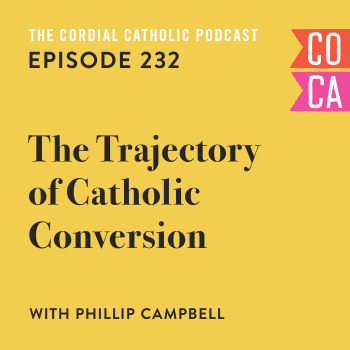
As a result of my writing, I end up getting a lot of e-mails and comments from people on all different kinds of journeys. Some are from people journeying into faith; some are from people journeying out of faith. Some e-mails and comments are from people who feel hoodwinked by a faith they grew up with and can no longer believe in.
I get all sorts.
Recently, I was in a discussion with someone decidedly on their way out of a faith tradition.
“I’m losing faith,” the e-mail began. “How can I possibly understand the Bible when there are so many different Christians all interpreting it in different ways? How do we reconcile all these differences with the idea of one holy and omnipotent God?”
“If there’s any objective truth,” they continued, “God must’ve meant the Bible to be interpreted a certain way. Right?”
I poured a great big mug of coffee, set my shoulders, and began to write back.
“Of course you’re losing your faith,” I typed. “Isn’t that the natural result of a system like you describe?”
I knew, because I’d been there too. The problem my Internet friend was describing began with a system which allows for the individual interpretation of Scripture. A system which valued the Bible as the highest authority on what we’re supposed to believe, and then left us as the ones charged with figuring out exactly what it said. This is the modern, non-denominational faith landscape—a sort of hyper-charged Sola Scriptura free-for-all.
Sola Scriptura is the Protestant idea that the Bible should be the sole rule of faith and it was taught, during the Protestant Reformation, by Reformers who saw the Catholic Church and her teachings as essentially corrupt. That the Bible should be the sole measure by which our faith is understood is a nominally sensible idea but today’s non-denominational Christian milieu has taken it far too far. What the Protestant Reformers believed should be interpretation of the Bible as carried out in communities has fractured, has corrupted, and has come to mean interpretation of the Bible by ourselves.
In other words, not at all what the Reformers intended at all.
“The system,” I wrote, “simply can’t function like this.”
After all, if each and every one of us tries to interpret what particular passages of Scripture mean—hard, challenging teachings like what Jesus says about marriage, adultery, or fitting a camel through the needle’s eye—we all often end up with wildly different ideas.
A simple survey of the non-denominational, Evangelical beliefscape reveals this to be the case. On issues like marriage, homosexuality, salvation, sin, baptism, and economics beliefs from Christian to Christian differ enormously.
On Monday, I might meet a Baptist who says that marriage is between one woman and one man and that only those chosen by God, from the beginning of time, can get to Heaven. On Tuesday, I meet an Episcopalian who says that marriage is open to whomever and that Heaven is probably just a human construct to explain what happens when we die. And, meh.
How is this possible, if we’re all reading the same Book?
“Ultimately,” I wrote in reply, “there was something wrong with how I read my Bible.”
And as a non-denominational Evangelical Christian I hit a wall. Is this really what God intended, I thought. Are we really all meant to read our Bibles in isolation? To develop our belief systems based on how we interpret what we read? Can this ever produce unity?
And when Jesus Christ prayed for Christian unity in his last recorded prayer on earth, he must’ve known that a system where each of us interprets his words for ourselves would never fly—would never produce any kind of sensible unity—if he really was who he said he was. Right?
And, besides, if this was the normative way of interpreting Scripture what about the elephant in the room: The first 1,500 years of Christianity in which the Church served as the ultimate source for understanding our faith?
In which the Church taught that it was the final arbiter of Scriptural understanding. Because, remember, people couldn’t read.
In the end, my struggle led me back into that same Church which held the keys for the first 1,500 years because that’s what made sense to me. What didn’t make sense is the framework in which my e-mail buddy found, and then lost, his faith. A system which tries to interpret the Bible for each and their own. Or, in the best case, for each and their own little community. In either case, there are millions of others trying to do the same thing—and reaching different conclusions. It just doesn’t make sense.
“Instead,” I said, “I’d rather be on the side of history.”
To dip my toes into the stream that’s been flowing since the beginning of Christianity. A stream which flows from the Seat of Peter, through historical succession of apostles, through an authoritative teaching body which says, “This is how we understand this because Christ gave us the power to bind and loose.”
“That makes sense to me,” I said.
I told my friend all of this, of course, and I left it at that. I never did hear back but, hey, I don’t always. It’s the Internet.
And, who knows, maybe I will someday. In my own faith journey so many little seeds were planted along the way by people who figured I’d never see the light of day—never come around to their point-of-view—and, here I am. Maybe for my Internet friend out of faith will someday be into another. Because while I do think that the logical conclusion of a broken system might just as well be a broken faith the logic of the 2,000 year old seamless system called Catholicism is pretty compelling, too.












